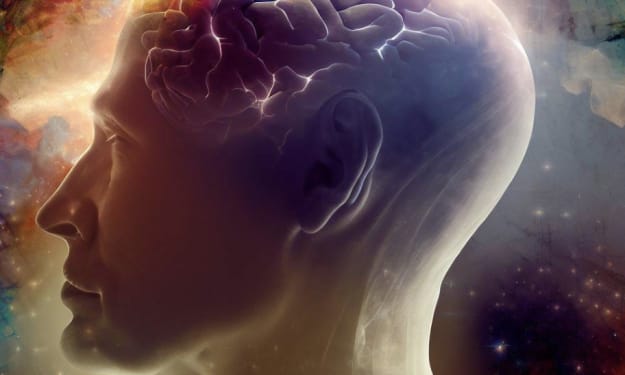Bipolar Disorders Do Not Need Medication
Show Them Support

Disclaimers! I am not a psychiatrist or psychologist, this is simply a topic I'm passionate about. The information stated has been plucked from websites that have been cited within the text.
Bipolar disorder may not always have to be treated with a medication of any sorts. A person with bipolar depression may just need therapy and people to talk to and be there for them. According to the website NIMH.gov, per the information that has been gathered, people with a bipolar disorder can be managed with natural influences, such as behavioral therapy, cognitive therapy, interpersonal therapy and many, many more things. Being with family may also be helpful when a person is struggling with a bipolar disorder, especially during a depressive episode. When a person is showing symptoms of a bipolar disorder, it all depends on what kind of episode they are having. If they are having a manic episode, they may show more energetic actions. They may feel hyper, or “jumpy,” and they may have trouble sleeping. They may become more active than usual, talk faster, and become jittery. Another symptom of a manic episode the be more agitated, irritable even. The symptoms I have found on the NIMH website are the most typical symptoms to search for during a manic episode.
During a depressive episode, the person may be showing the opposite symptoms of a manic episode. According to the research I have gathered from the NIMH website, when a person with a bipolar disorder is going through a depressive episode, they may feel very sad and have little to no energy. They may have a decrease in activity levels, and just like with a manic episode, they will have a hard time sleeping, though they may sleep too little or too much. During a depressive episode their anxiety will become increased, they may forget things, eat too much or too little. They may typically think about death or suicide more during a depressive episode. Those are some symptoms of each episode, there are more that may not have been discovered or known.
Treatments for a bipolar disorder may vary, depending on the person that has it and the severity of the disorder. If the person with a bipolar disorder drinks a heavy amount of alcohol, which may be typical during depressive episodes, help them cut down on alcohol intake as a behavioral type of therapy, as well as regular exercise. Make the person feel loved and cared for, call them often to check in them, it makes a big difference. Getting them on a regular daily schedule may help as a social rhythm type of therapy. Help the person accept their illness, it may help as interpersonal therapy. If they know they have a disorder, they may be able to help themselves by keeping the daily routine on track if they feel themselves decreasing or increasing in mood. Make sure that they know they are not alone, be there for each step of the way.
Keeping up to date with what goes on in their life, see if things that have occurred that could cause a manic or depressive episode. If there are noticeable changes in their behavior or actions, something may have happened to cause that. Try to study on non-medication remedies to keep a bipolar person at ease. Be the person that they can trust and come to when they are feeling down about life, be the shoulder they can cry on. They may feel like they are drowning, keep them above the water of a depressive or manic episode.
According to the book Healing Depression and Bipolar Disorder Without Drugs by Gracelyn Guyol, depression is in fact the leading disability around the globe. In the United States alone, 18 million adults suffer with depression or bipolar disorder. 2.6 percent of population in the U.S. is affected by bipolar disorders, equally women and men. According to Grace Guyol, the author of Healing Depression & Bipolar Depression Without Drugs, twenty-five to fifty percent of people with bipolar attempt suicide one or more times, and if they are left untreated they have a 15 higher risk of death by suicide than the entire population of the United States.
Talk to them about a lifestyle change, I found it could be helpful through the website psycheducation.org. Though the idea of regular sleeping schedules might be difficult for some people, it may help them pull themselves out of depressive episodes. Managing bipolar depression without medication may seem very restricting, like there isn’t much to do. If you are consistent with the treatments listed above, it may be a big help to the person with bipolar depression. Most call this kind of treatment psychotherapy, since it will be helping with them psychologically without the use of medications.
If the person can cope with having a bipolar disorder, it may be much easier to maintain, even without all of the medicines and doctor visits. They may know what’s going on, and what to look for if they feel a depressive or manic episode closing in on them. This does not mean they will always be able to control of the disorder alone, they may still need help from friends and family that are familiar with their disorder. According to psycheducation.org, it may help them gain trust in others that are close to them, so they don’t only have one or two people to rely on, they may end up feeling as a burden over time. Talk to their friends and family, help them get on board with gaining the person’s trust. If the person knows that they have loved ones that care for them, it may make things easier on them.
In some cases, the person may need help to go see a doctor to be diagnosed. They may not notice the symptoms themselves and will just believe they are having a rough patch in life. According to the author Grace Guyol, there is a possibility that an undiagnosed manic person may turn to alcohol, tobacco, caffeine, chocolate, or street drugs to keep themselves temporarily calm and “happy.” Keep an eye on these kinds of things, even if the person has been diagnosed. They may still struggle and may want to turn to those harmful products if they give up on themselves. Not only are the products bad for their body, they could also cause brain dysfunction which may contribute to addiction and bad habits that will become increasingly harmful for them.
During some cases, the medication a bipolar patient takes may cause horrible side effects that cause the patient to hate taking their medication, which may lead up to them neglecting to even take medication at all, according to Grace Guyol. They may turn to other self-treatments that may be harmful for the body or their mental health, possibly increasing their depression periods to a higher point than their manic periods. As stated before, the bipolar patient may turn to street drugs, tobacco, or alcohol to keep themselves in a somewhat “sedated” stage. In doing so, they may damage themselves further. This may especially happen when a bipolar patient has been put on medication and they neglect to take it, due to the side effects to the medication.
About the Creator
Rain Paige
I've been creative writing since I was 9 years old. I'd love to become an author one day for any kinds of genres! The money I receive on here will be put away so I can go to my community college, Pembroke is far too expensive sadly 😅






Comments
There are no comments for this story
Be the first to respond and start the conversation.